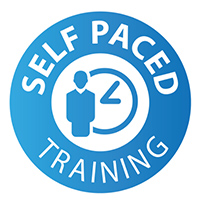Classes for Transactions
Constrained Random Verification • Representing Transaction Data • SystemVerilog Classes • Object = Instance of Class • Constructor • Constructor Arguments
Class Members and Copying
Static Data Members • Constant Data Members • Randomized Data Members • Data Members of Class Type • Forward Typedef • Object Copy with new • Shallow Copy • Deep or Shallow Copy?
Virtual Interfaces
Test Harness and Testbench • Modules versus Classes • Creating the Testbench • Virtual Interface • Building a test harness • Adding a clocking block • Connecting the virtual interface • Accessing a Task through a Modport • Testbench Static Structure • BFM or Driver Class • Testbench Object Structure
Extending Classes for Stimulus
Improved Generator Class • Constrained randomization • Creating an Extended Class • The Inheritance Relationship • Inheriting Class Members • Control Knobs and Constraints • Methods of Extended Class • Derived-class Object, Base-class Variable • Virtual Methods • General-Purpose Infrastructure
TLM and Channels
Reusable Verification Environments • Transaction Level Modeling • Using Channels • Generic Channel and Transaction Classes • Out-of-Block Declarations • Connecting Channels • Getting Data from a Generic Channel • Safe Downcasting with $cast • Type Parameterization of Classes • Running Components with fork...join • fork...join_none • Identifying Forked Processes
Component Hierarchy
Testbench Component Hierarchy • Implementing Relationships • Base Classes (review) • Abstract Class and Pure Virtual Methods • Interface Classes in IEEE 1800-2012 • Component Base Class • Launching a Task with fork...join_none • Customising a Component • Constructing a Component
Monitors and Checkers
Kinds of BFM-Like Component • Monitors and Checkers • Bus Protocol Checking • Modports for Driver and Monitor • Monitor Implementation • Using the Monitored Transactions • Checker Implementation • Mutual Exclusion • Semaphore Class • Checker with Mutual Exclusion
Functional Coverage
Coverage Driven Verification • Verification Planning • From Features to Tests • Covergroups • Embedded Covergroups • Procedural Sampling • Arguments and Options • Coverage Bins • Bins and Coverage • Cross Coverage • Cross Coverage and Labels • Cross Coverage Example • Controlling Cross Bins
More on Constraints (Optional Topic)
Inline Constraints • Overriding Constraints • Procedural Control of Randomization • Procedural Control of Constraints • Constraint Ordering • Function Calls within a Constraint • Constraining Dynamic Arrays • Constraining an Array-of-Objects • Arrays within a Constraint • Hierarchical Constraints • unique • Soft Constraints
Processes and Events (Optional Topic)
The std Package • What is a “processâ€? • fork...join_none • fork...join_any • wait fork • disable fork • Identifying Processes • Fine-grain Process Control • Process Control Example • Mailbox Class • Using Mailboxes • Enhanced Events




